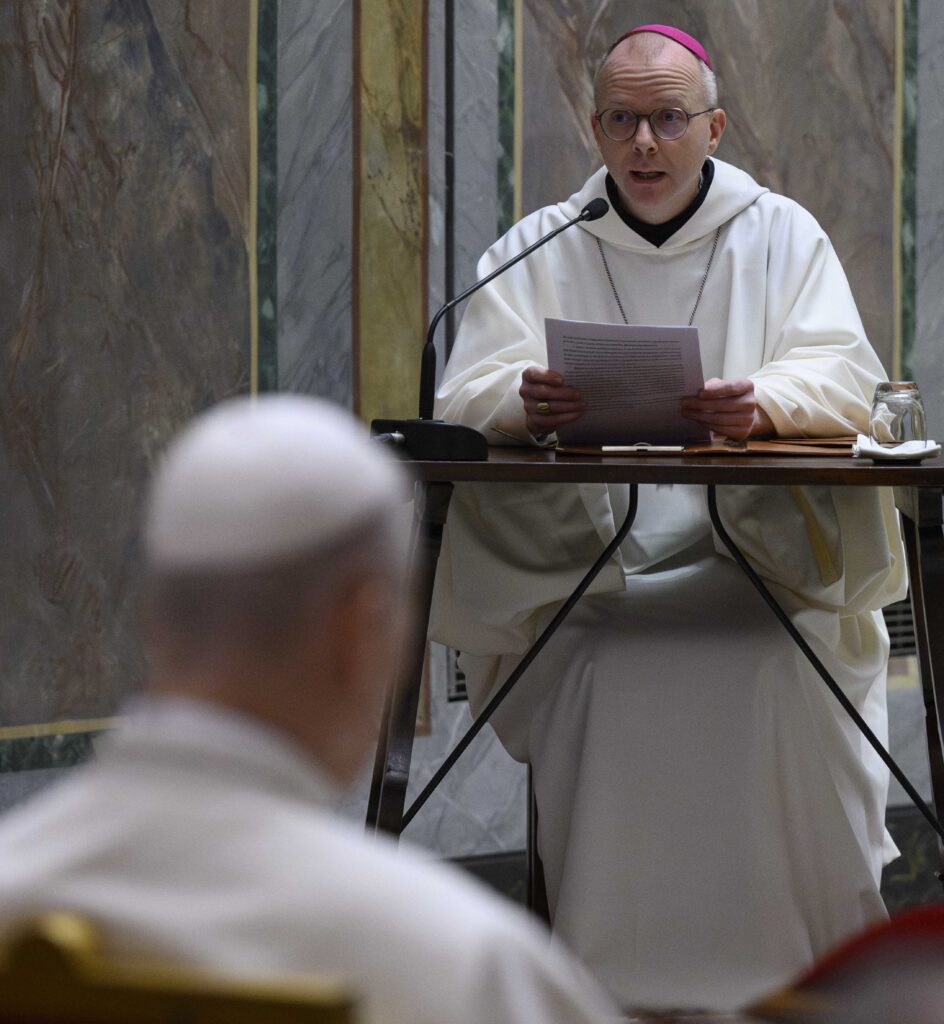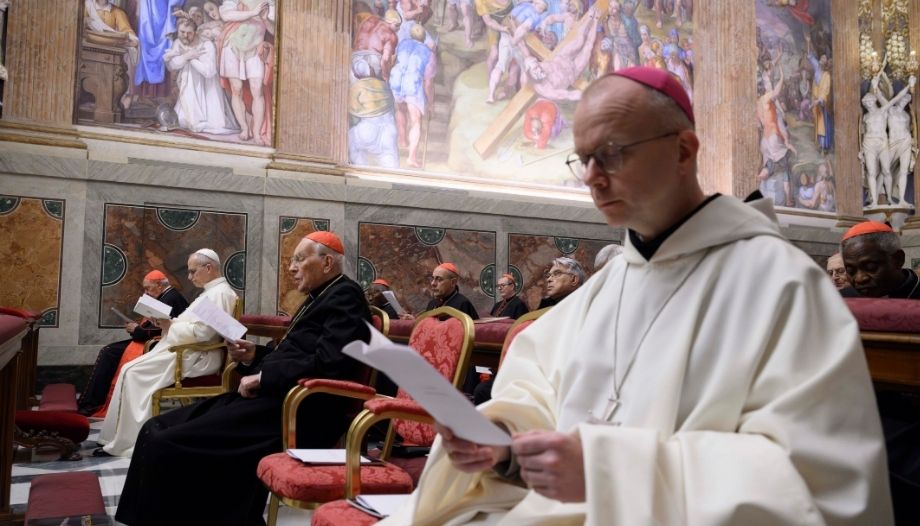God is not like calling 112 with an emergency, but rather an insurance policy, “confident of being able to count on God's help”. Job “refuses to think that God is counting his life as if it were a balance sheet”. Or ‘idealistic St. Bernard” is an excellent companion for those undertaking “a Lenten exodus from self-centeredness and pride.” These are some of the ideas of meditations Erik Varden, Bishop of Trondheim (Norway), is preaching in the Exercises Pope Leo XIV and the Roman Curia.
Some of the Trappist bishop's messages in the meditations, which are being leaked by Vatican News, are, in summary, the following:
1- “God's help is not occasional; it is not an emergency service to which we turn when a house is on fire or someone is hit by a car, as if we were calling 112” (from Varden himself).
2. “Mary Ward, that great Christian educator of the 17th century., used to say to her sisters: “Do the best you can and God will help you”. (Varden).
Job does not accept the rationalizations of his friends. He refuses to think that God is accounting for his life as if it were a balance sheet. He is determined to find God present in the affliction, heroically crying out, “Who but He can do this?‘ (Varden).” (Varden).
4. How do I deal with trials that seem meaningless, that destroy my protective barriers? Is my relationship with God a form of bargaining, so that when the going gets tough, I am led to follow Job's wife's advice to ‘curse God and die’ (Varden).
“Abiding in God's help.”
To dwell in the help of God, as St. Bernard teaches us, does not mean to traffic in securities. It means going through the Lament and the Threat in order to learn to live with Grace at this new level of depth. And thus allowing others to find it“ (Varden).

6. “Bernard is ‘an excellent companion for anyone undertaking a Lenten exodus from self-centeredness and pride with the desire to pursue the truth of self, keeping his eyes fixed on the all-illuminating love of God”" (Varden. Vatican News).
7. There is a certain ‘similarity of character’ between Bernard of Clairvaux and Thomas Merton, an American writer and Trappist monk, who devoted himself mainly to the themes of ecumenism, interreligious dialogue, peace and civil rights” (Varden, Vatican News).
8. Lent “is a time of authentic spiritual struggle, in which the Church ‘does not diminish the invitation to fight against vices and harmful passions: her language is ‘Yes, yes’, ‘No, no’, not ‘now this’, ‘now that’’. And she offers us, at the beginning of the Lenten battle, ‘a melody that brings peace, as a soundtrack for this time.’ (Varden, Vatican News).
9. Varden “reproduces almost in its entirety the text of Psalm 90, Qui habitat”. St. Bernard, during Lent of 1139, preached a series of seventeen sermons on ‘Qui habitat’.’ to their monks .
10. In his meditations, concludes Monsignor Varden, the holy Cistercian monk explains “what it means to live in grace when we fight evil, promote good, defend the truth and follow the path of the exodus from slavery towards the promised land, (...) without turning to the right or to the left, remaining at peace, aware that beneath what sometimes seems to walk on the razor's edge, ‘there are eternal arms’”. (Varden, Vatican News).







